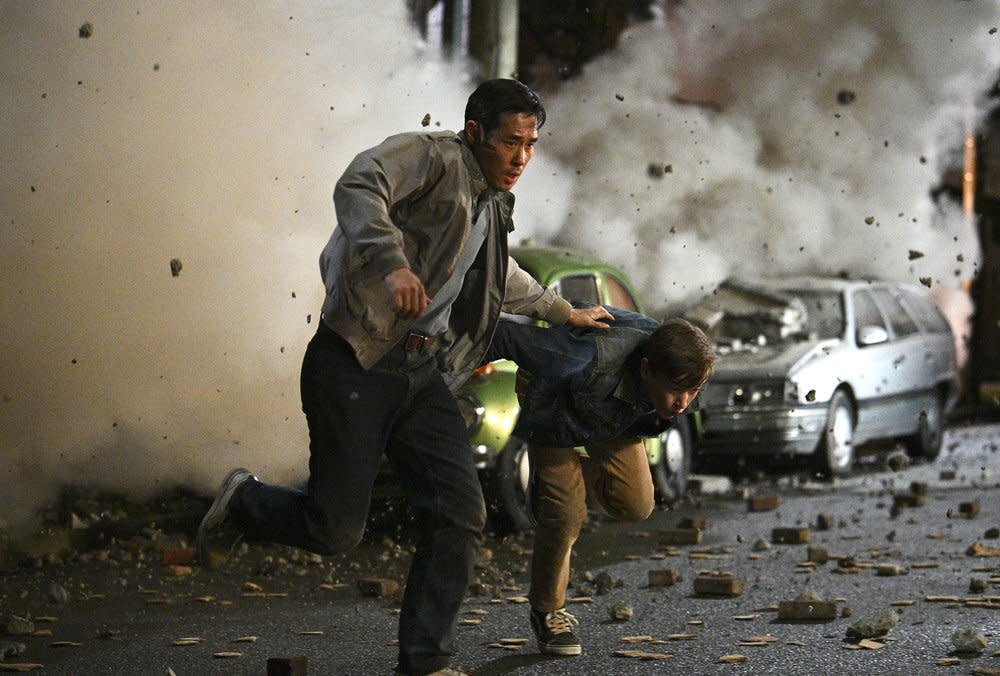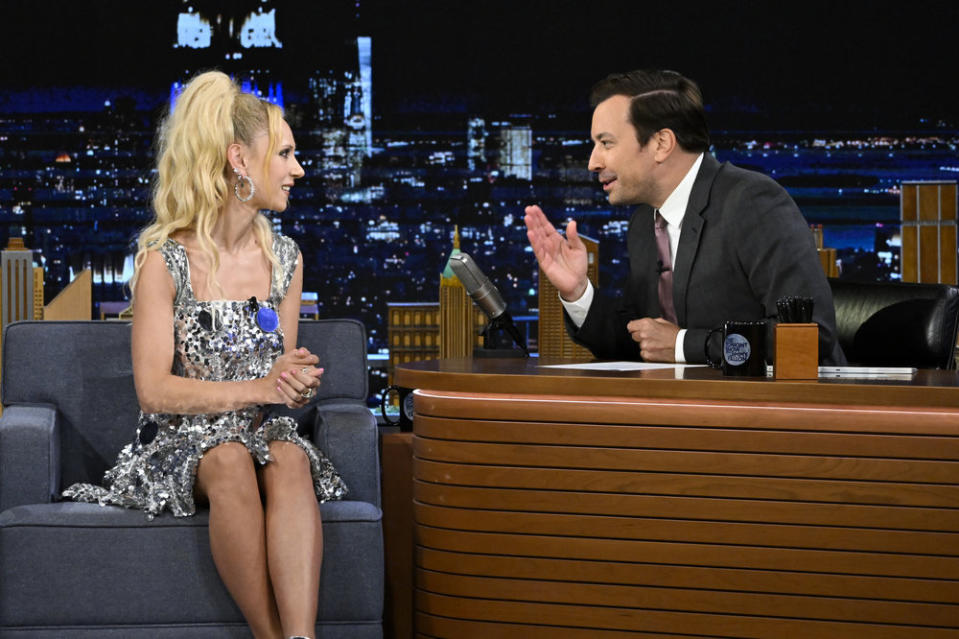Here’s Why NBC Might Kill a Third of Its Primetime Programming

- Oops!Something went wrong.Please try again later.
NBC is considering cutting the 10 p.m. hour of its primetime schedule and handing the programming duties off to local affiliates, The Wall Street Journal reported August 26. “While NBC is the number one network, we are always looking at strategies to ensure that our broadcast business remains as strong as possible,” a spokesperson commented to media, including IndieWire, after the story broke. “As a company, our advantage lies in our ability to provide audiences with the content they love across broadcast, cable and streaming.”
OK, but how would killing one-third of primetime programming accomplish that, exactly? We’ll get to it, but the real, unspoken reason is easier to identify, official statement or no: It’s all about cost-cutting.
More from IndieWire
Why NBC Will Take Back the Golden Globes: Have You Been Drinking? It's the Ratings
Seth Meyers on the Pure Joy of 'Corrections' and the Round of Applause That Brought the Show Back
Live sports, a heavy drag on NBC’s bottom line, are increasingly expensive. Also not cheap is building out Peacock as an essential player in the ongoing and content-centric streaming wars. Eliminating an hour of linear television could help offset some of those costs. It also doesn’t totally eliminate a revenue stream: NBCUniversal still monetizes its affiliates via an ad-revenue split when local programming is on the air.
On the flip side, affiliates likely wouldn’t turn down the primo time slot to better line their pockets. Local-market content, like news, is much cheaper to produce — and 10 o’clock is better than 11.
Still, 10 p.m. is generally the least-watched primetime slot as people turn off their TVs and turn in. That means it brings in the lowest amount of hourly revenue from national advertisers. Partially offseting those factors is the fact that 10 p.m. is the primetime hour with the most delayed viewing.
Relative to its competition, NBC is more successful in the very 10 p.m. hour it may abandon. From September 20, 2021 through last Thursday, August 25, NBC’s entertainment programming (so, no sports) averaged a 0.38 “live” rating. That number grows to a 0.56 with one week of (mostly) DVR catch-up viewing. Live + 7 Day is how linear television ratings are generally reported these days; all ratings in this story are Nielsen data.
Meanwhile, CBS averaged a 0.32 Live + Same Day rating; ABC averaged a 0.29. With delayed viewing, both CBS and ABC jump to a 0.46 rating, an even larger lag behind NBC. Again, CBS, which skews older than the other two networks, is first in terms of total viewers during the hour; NBC is second.

Lori Allen/NBC
NBC, CBS, and ABC have provided national programming from 8 p.m. to 11 p.m. — aka primetime — since the early days of television. Younger broadcast networks (both in terms of their lifetimes and demo reach) Fox and The CW already cut off their primetime programming at 10 p.m., handing the reins to affiliates.
Eliminating the 10 o’clock hour from NBC’s (and only NBC) averages from that September-August period, NBC would pass CBS in “live” viewers. In Nielsen’s Live + 7 Day numbers, CBS would maintain a mere 5,000 total-viewer advantage over NBC. To look at things this way is equal parts unfair and reasonable: On a primetime-averages basis, comparing 8pm-10pm vs. 8pm-11pm puts those networks with the 10 p.m. hour at a disadvantage. However, that’s nothing new; the industry already does this when ranking Fox and The CW with the original Big 3 broadcasters.
Another positive in the possibility of eliminating 10 p.m.: Jimmy Fallon would get a head start on his late-night rivals. Currently “The Tonight Show” kicks off at 11:35 p.m., just like “The Late Show with Stephen Colbert” on CBS and “Jimmy Kimmel Live!” on ABC. With no 10 o’clock hour of primetime in the way, Fallon can start at 11 p.m. — even 10:30, if the affiliates agree to run 30 or 35 minutes of late-night local news (as they do currently).
During the 11-month period we studied for this story, “The Tonight Show” and Colbert tied in the key ratings demo, adults 18-49, with a 0.22 each. Colbert grows more than Fallon does in delayed viewing; unlike scripted programming, however, talk shows don’t get a large DVR lift. Kimmel trails the other two over the current September-to-September season, averaging a 0.19 Live + Same Day rating. Delayed viewing doesn’t catch ABC’s Jimmy up to NBC’s.
No matter how you slice it, Colbert is way ahead of his direct competition in terms of total viewers. Fallon brings up the rear by that Nielsen metric, which counts everyone aged 2 or older. (Though they sure keep new parents up, there are not a ton of infants watching late-night TV.) In other words, former late-night TV king Fallon could sure use the advantage. (Should there be one hour of local programming as opposed to 30 or 35 minutes, Fallon may reap no rewards.)

Todd Owyoung/NBC
One person with knowledge of NBC’s internal discussions told IndieWire that talks to dump 10 p.m. are preliminary. Any such shift would be at least a year away; much of the programming for NBC’s upcoming fall schedule is already completed and the advertising is sold. Should this move go down, it would only impact NBC’s regularly scheduled programming. In other words, “Sunday Night Football,” the Olympics, the Golden Globes, and any other special could (and would) run over this new hypothetical primetime cutoff; NBC stations would stick with the event programming.
This fall, NBC will air new series “Quantum Leap” at 10 p.m. on Mondays, “New Amsterdam” in the slot on Tuesdays, “Chicago P.D.” on Wednesdays, “Law & Order: Organized Crime” on Thursdays, and “Dateline” on Fridays; “SNL Vintage,” a rerun, airs in the slot on Saturdays. On Sundays in the fall, TV’s top show “Sunday Night Football” rules the airwaves. The schedule turns over in midseason and again in the summer. Should NBC hand the 10 o’clock hour back to local affiliates in the future, quite a few shows would be canceled or moved to another platform.
NBCUniversal’s streaming offering, Peacock, has the bandwith and could use the content. And there’s good stuff here: “P.D.” is a key part of Dick Wolf’s “One Chicago” lineup (his “Organized Crime” is less important to the “Law & Order” universe), and inside of NBC those who have seen the “Quantum Leap” reboot are pretty excited about it.
Cutting the time and passing it back to affiliates would not be unprecedented, particularly at NBC. Mark Lazarus, chairman of NBCUniversal Television and Streaming, recently canceled Lilly Singh’s late-night show at 1:30 a.m.; the time slot went back to affiliates. Just like that call, Lazarus won’t make this one in a vacuum: His affiliate-relations department has a liaison who technically works for NBCU but hand-in-hand with independently owned stations. Any decision will be collaborative.
There are about 230 non-NBC-owned NBC affiliates around the country; 11 others (referred to as “NBC Local”) are owned and operated by NBCUniversal. Those 11 NBC O&O stations, less than 5 percent of the grand total, make up 30 percent of the overall national audience.
Best of IndieWire
‘The Lord of the Rings’: Everything You Need to Know About Amazon’s Big Money Adaptation
From 'Reality Bites' to 'Fatal Attraction,' Keep Track of All the Upcoming Film-to-TV Adaptations
Sign up for Indiewire's Newsletter. For the latest news, follow us on Facebook, Twitter, and Instagram.

